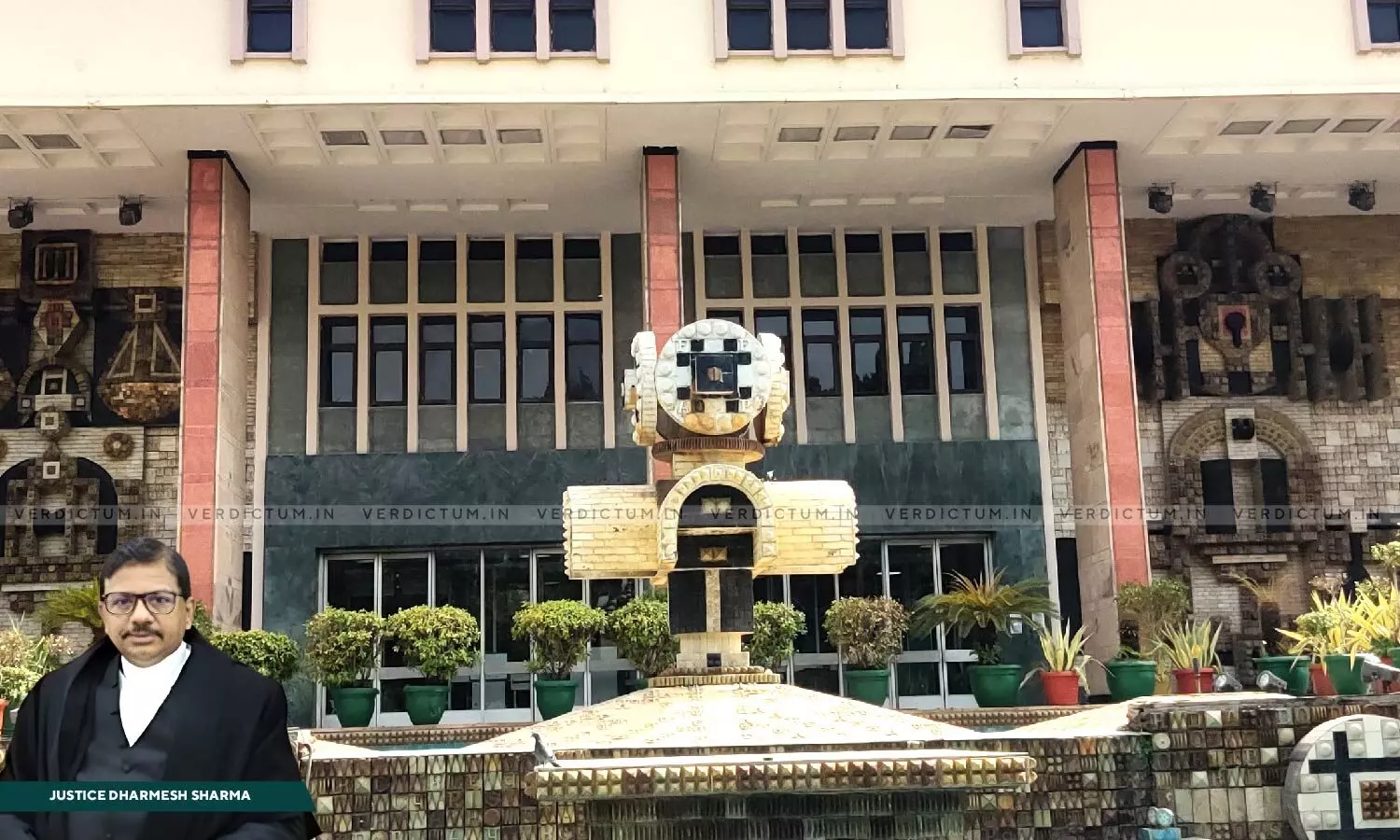
No Concept Of ‘Contributory Negligence’ In Railway Accident Compensation Matters: Delhi HC
 |
|The Delhi High Court observed that there is no concept of ‘contributory negligence’ in railway accident compensation matters.
The court noted that the Section 124A of the Railways Act, 1989, lays down ‘strict liability’ or ‘no fault liability’.
The Court was considering an appeal filed under Section 23 of The Railways Claims Tribunal Act, 1987, against the order of the Railways Claims Tribunal (RCT), Principal Bench, Delhi that dismissed a claim application.
A Single Bench of Justice Dharmesh Sharma observed, “… the finding recorded by the learned RCT that the deceased was probably trying to de-board a running train at Tilak Bridge in order to catch a train to Ghaziabad via Okhla is a blind surmise or conjecture since no evidence was led by the respondent Railways to that effect. At the cost of repetition, the narrative of the aforesaid DD No. 34A recorded soon after the incident tells its own tale. All said and done, it is now well settled that there is no concept of ‘contributory negligence’ in railway accident compensation matters and it is well ordained in law that Section 124A of the Railways Act lays down “strict liability” or “no fault liability” in case of railway accidents. Reference in this regard can be invited to decision in Union of India v. Prabhakaran Vijaya Kumar”
Advocates Rajan Sood, Ashima Sood, and Megha Sood represented the appellants while CGSC Arunima Dwivedi represented the respondent.
In this case, the appellants were the legal heirs of the deceased man consisting of his wife, minor son, and dependant parents. It was their case that the deceased was a daily passenger having a Monthly Season Ticket (MST) valid from August 19, 2017 to September 18, 2017. On the fateful day of the accident, i.e., September 16, 2017, the deceased was travelling from Ghaziabad to Okhla by train for his duty at Intex Phone Service Centre, and when the train reached at Platform No.3, Tilak Bridge Railway Station, New Delhi, he accidently fell from the moving train and sustained serious/ grievous injuries all over his body leading to his death.
Post-mortem was conducted on the body of the deceased at the hospital wherein opinion was expressed that the injuries were possibly sustained in a railway accident. This sequence of events led to the filing of the claim application by appellant/applicant under Section 16(1) read with Section 13 (1-A) of The RCT Act, and Section 124-A of the Railways Act. The respondent Railways contested the claim application and relying upon the DRM Report, it was stated that the deceased was not a ‘bonafide passenger’ of the train and that the incident occurred due to negligent and careless act on the part of the deceased, as he trying to de-board from a moving train.
The High Court after hearing the arguments from both sides said, “The aforesaid disposition is clearly substantiated on a bare perusal of the above referred tabular information relied upon by the learned RCT in the impugned order. Although the third column provided “no exception” to the first class season ticket holders to travel from Lucknow to New Delhi, it is silent as to how 2 nd class season ticket holder shall be treated for a journey less than 200 kms. In the said scenario, the findings recorded by the learned RCT that the deceased had not taken the prescribed route in the MST to go to Ghaziabad via Old Delhi Junction falls into oblivion since there is nothing to discern that the passengers could not have taken a different route from New Delhi via Anand Vihar to reach Ghaziabad. What belies common sense is how in the world the train could cover distance ‘to and fro’ Ghaziabad to Okhla via old Delhi Railway junction. The MST imprints “Gaziabad Jn & Okhla” via DLJ. It would obviously imply a train journey commencing from Old Delhi Railway Station to Ghaziabad in State of Uttar Pradesh via/through Okhla in south East of Delhi, and likewise back to Old Delhi Railway junction following the same route.”
The Court added that the conditions in the MST are capable of more than one interpretation, for instance, it could mean journey from Old Delhi Railway Station/Junction to Ghaziabad via Okhla and back and it could also mean journey from Ghaziabad via Anand Vihar Railway Station and New Delhi Railway Station and then onwards to Old Delhi Railway Station, provided distance of more than 34 kms is not covered.
“Whatever be the way out, in case of two interpretation as to the route structured by the respondent Railways, the interpretation that is in favour the victim/passenger should be accepted, rather than the other way around. Be that as it may, there is no iota of evidence led that the rail fare for such diversion, if assumed to be so for the sake of convenience, was higher than what was otherwise provided or stipulated for the valid use of MST. Further, there is no iota of material to raise an inference that the deceased followed a route covering a distance of more than 34 kms as conditioned in the MST”, noted the Court.
Accordingly, the High Court directed the respondent to pay compensation of Rs. 8 lakhs to the claimants along with interest @ 12% per annum within two months and disposed of the appeal.
Cause Title- Reshma & Ors. v. Union of India (Neutral Citation: 2023:DHC:8462)